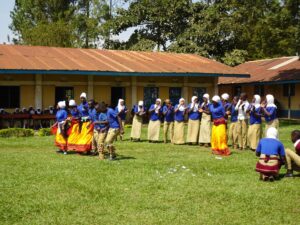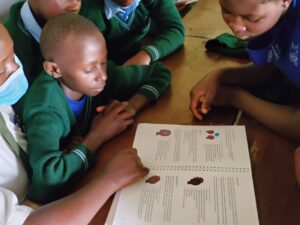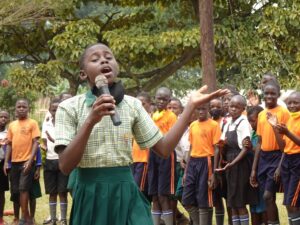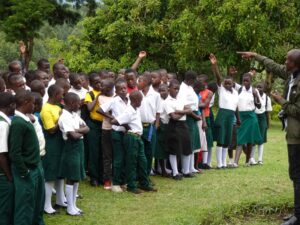



Peer Education Rwenzori (PER) is a school-based health education program operating as a community-based organization in the Kabarole and Bunyangabu Districts and Fort Portal City in western Uganda. The program aims to improve students’ health by engaging student peer educators to provide information on topics such as sexual and reproductive health and mental health, and in doing so, equip students with the ability to make decisive choices that position them for long and healthy lives.
PER originated through a research collaboration between students in Ugandan secondary schools and the School of Public Health, University of Alberta. This led to the formation of school-based clubs to help students gain better health knowledge and avoid the common health and social problems facing Ugandan adolescents. In early 2008 the initiative became formalized as Peer Education Kabarole. In 2022, the program was renamed Peer Education Rwenzori to reflect the program's present in multiple districts. It presently operates in 14 secondary schools and one primary school within the Rwenzori region.
Under the approval of each school’s administration, the peer educators organize themselves within their school as a club. Student leaders are elected and one or more teachers act as a resource and overseer to the peer educators. PER equips peer educators with knowledge and skills through training activities at the schools, an annual district-wide workshop and print materials, and by facilitating access to other information resources within the community. Peer educators engage with their peers using a variety of educative activities (such as dramas, songs, posters and debates) and counseling support services.
Objectives of Peer Education Rwenzori:
The overall objective of Peer Education Rwenzori is to use peer education methods to provide relevant and reliable health information to youth in the Rwenzori region.
The specific objectives of Peer Education Rwenzori are as follows:
- To provide training on health topics to peer educators and, through this training, facilitate health knowledge dissemination to their peers;
- To use information dissemination strategies that youth consider engaging and effective;
- To provide youth with health information and counseling that is scientifically-based while also anticipating their needs and meeting their needs;
- To encourage youth through education and awareness to take responsibility for their health and make health-promoting decisions ;
- To engage in partnerships to support activities that are relevant to the program’s objectives and are of benefit to partners.
